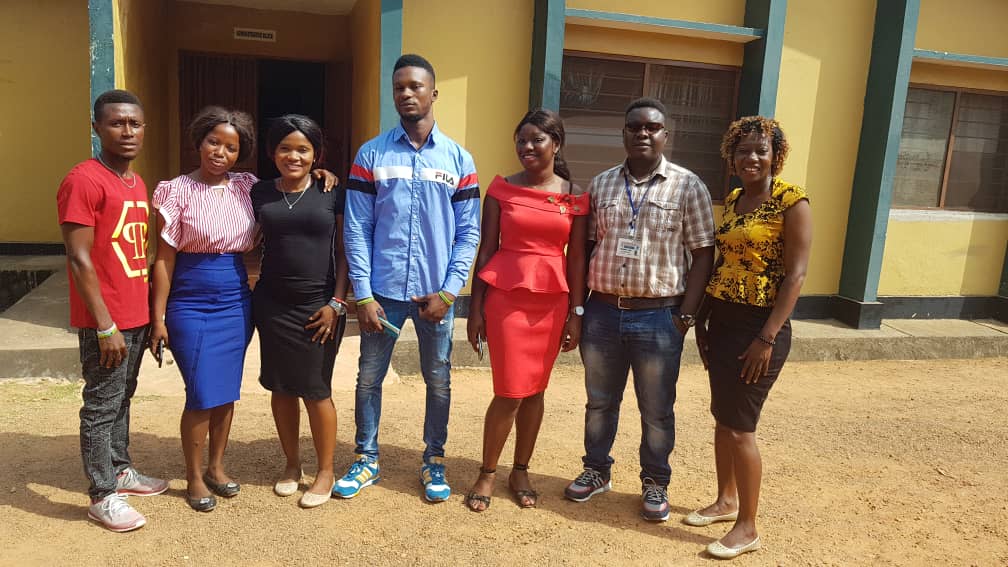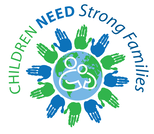|
In honor of World Social Work Day 2019, we want to share and celebrate the hardworking Case Management Team at the Child Rescue Centre! We are so grateful for all that they do as they go above and beyond to care for the children in CRC programs!  Imourana Bockarie, CRC Case Manager Imourana Bockarie, CRC Case Manager Imourana Bockarie As a CRC Case Manager in charge of more than 60 students, and the Coordinator of the Tier 3 students, Imourana Bockarie is a busy man. “I enjoy meeting with parents and children on site visits to discuss the welfare of the children,” he says. He believes that case management is critically important to the CRC’s mission. “Case Management brings out detailed information information on each child so the CRC knows how to help them, and it helps the parents to value their children.” Imourana graduated with honors, earning a Bachelors of Science in Environment and Development Studies. He finds that the biggest challenge he faces in his role has to do with carrying a high caseload of more than 60 cases, coupled with transportation constraints. “It’s hard to reach all the homes,” he says. “Of course the CRC has two motorbikes, but with five Case Managers capable of riding them, it’s sometimes a challenge to access one when you need it.” Imourana has high hopes for the children on his caseload, and hopes that they will all find a career that rewards them, and that they will become leaders of Sierra Leone. 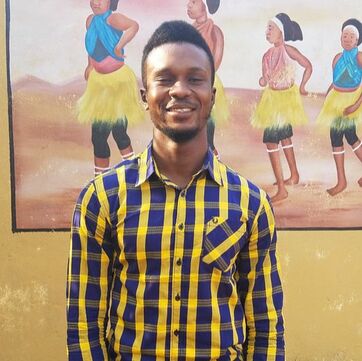 Joseph "JJ" Junisa, CRC Case Manager and Sponsor A Child Coordinator Joseph "JJ" Junisa, CRC Case Manager and Sponsor A Child Coordinator Joseph "JJ" Junisa CRC Case Manager Joseph Junisa, or “JJ” as he is affectionately known, grew up in the CRC’s residential program, before earning a bachelor’s degree in Human Resource Development from the University of Makeni. In addition to managing a caseload of more than 60 CRC children and their families, JJ is also the Sponsor A Child Coordinator. JJ most enjoys conducting school visits to the children in his caseload. “School visits are the most enjoyable part of case management. I am always happy when I’m among our students and also enjoy talking to their teachers about their grades and trying to motivate/encourage them to do more. The biggest challenge he faces is when he learns that a child is not doing well in school. JJ believes that case management is “so important because it helps us to understand the problems affecting our students especially about their educational input. When we do our home and school visits it helps us to know what their problems are especially in terms of education because it’s the key to their future success.” JJ’s greatest hope is “to see these kids grow up educationally, spiritually and personally, and become potential leaders in the future.” 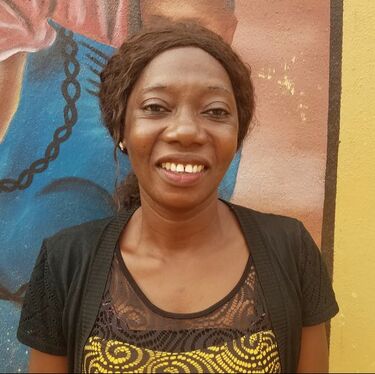 Amie Nallo, CRC Case Manager Amie Nallo, CRC Case Manager Amie Nallo “The most enjoyable part [of being a CRC Case Manager] is whenever I’m in the community for site visits, I get to meet and talk with many people,” Amie Nallo shares. Amie enjoys getting to know each child and their needs, as well as how they are doing in their. Amie has a Diploma in Food and Nutrition, but is currently studying Community Development Studies at Every Nation College in Bo. Amie feels that the biggest challenge she faces is that sometimes families in her caseload will move from one place to another without notifying her or the CRC. Tracking these itinerant families down adds additional stress to the management of a caseload of more than 60 cases. However, she believes strongly in the importance of case management in ensuring the success of every child in her caseload. “I get to know the attributes and behavior of these kids in their homes and schools, and that helps me know whether they are doing well and how I can help them if they’re not,” she says. “My hope is that they will do well in school, and that they will help other vulnerable children to become better citizens as well.” 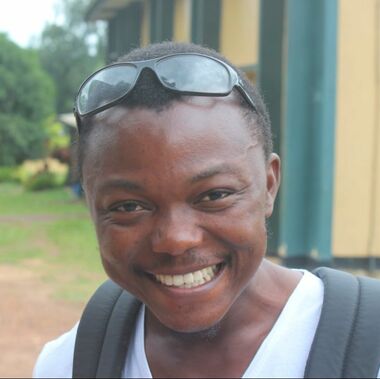 Henry Kebbie, CRC Case Manager and Assistant Sponsor A Child Coordinator Henry Kebbie, CRC Case Manager and Assistant Sponsor A Child Coordinator Henry Kebbie Henry Kebbie works at the Child Rescue Centre (CRC) as the Assistant Coordinator for the Sponsor A Child Program. Henry is also responsible for a caseload of 70 children supported by the CRC’s programs. Engaged to be married soon, Henry is the proud papa of a young daughter. Henry’s story is unique in that he was a child supported by the CRC’s Child Support Program, which provided health and education support from primary through secondary school. After graduation, he applied for and won a Promise Scholarship which enabled him to attend university. Graduating with honors, Henry holds a Bachelor of Science in Social Work from Njala University. Henry credits his being a CRC student with his path toward becoming a social worker. “It has always been my desire to be a social worker so that I could return to work with an organization like the CRC which is working to save helpless families and especially destitute children,” Henry says. Henry applies the lessons he’s learned to his work with the children on his caseload. “I always encourage them to take their studies very seriously, as I did,” he says. “I went through the same program at the CRC, and now I am working for the CRC. I believe it is important that children are educated and grow up to be a good example for others, just like I am.” Henry Kebbie was drawn to social work out of a desire to help people - particularly those who are vulnerable. At the Child Rescue Centre (CRC), Henry found an opportunity to help the most vulnerable children and their families. He was deeply interested in community development and wanted to engage in work that would have a deep, lasting and positive impact. Being a case manager for vulnerable children and their families helps him see that impact every day. Henry finds the work at CRC particularly rewarding because of the CRC’s vision and focus to give something positive to the community of Bo. Henry’s deepest hopes for the children on his caseload are that they all do well in school and find a bright future, and that they all know how deeply they are blessed by God. 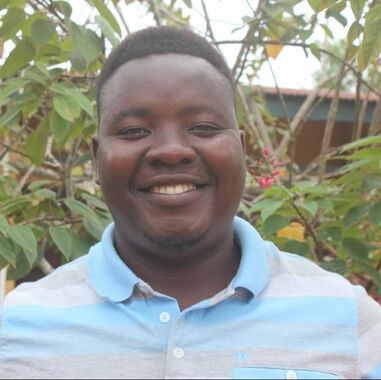 Emmanuel Lamin, CRC Case Manager Emmanuel Lamin, CRC Case Manager Emmanuel Lamin Emmanuel Lamin is a Counselor at the Child Rescue Centre, and also serves as a Case Manager as part of the CRC’s growing Case Management Team. He is also the proud father of a young son. He graduated with honors, earning a Bachelor of Science in Social Work from Njala University, and is currently pursuing a certificate in Counseling. Emmanuel describes his field of work as follows: “After going through a calculated research into what I wanted to do as a career, I found the discipline of social work. It appealed to me because it is purposely concerned with the most disadvantaged and vulnerable people in our society. I wanted to be a positive change agent in my society, by impacting the lives of others.” “The most rewarding part of my job is working at the Child Rescue Centre (CRC). The CRC has a vision and mission to be a positive force on the lives of those that are needy in our society. Also, working with children and their families is a great reward. I particularly love holding counselling sessions for kids and their families. The staff of the CRC works closely as a team to help these vulnerable children and their families, and that has a positive impact on communities as a whole.” “There are challenges, of course. Working with human beings is difficult because they are dynamic - children are particularly so. As a case manager and a counselor it is difficult to address certain behavior patterns, cases and complaints. Even some parents can be challenging.” “As a caseload manager, I am responsible for 68 children currently. It is difficult to keep up with such a large caseload. My hope is that the children I am responsible for will take their academic work seriously, so that they will become independent and help others. I hope that the families continue to develop their abilities to take good care of their children. I hope that families will work to maintain a good relationship with their children, and with the CRC.” 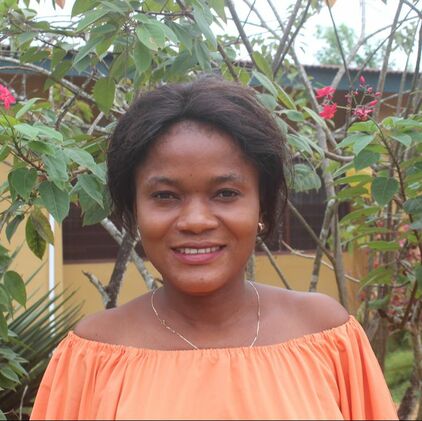 Deborah Kanneh, CRC Case Manager and Family Care Coordinator Deborah Kanneh, CRC Case Manager and Family Care Coordinator Deborah Kanneh Deborah Kanneh, works as a Family Care Coordinator and Case Manager at the Child Rescue Centre in Bo, Sierra Leone. Happily married and the mother of a young son, Deborah finds the work she does in providing support and care to the children and families in her caseload to be immensely satisfying. She earned a Bachelor of Science in Social Work from Njala University, and graduated with honors. Deborah describes her field of work as follows: “It has been a dream of mine to become a social worker ever since I was in Senior Secondary school. I knew I wanted to work with children and individuals of all ages. Being a social worker enables me to help children, families and people facing problems in our society.” “The most rewarding thing about my job is that I work for a charity organization. The Child Rescue Centre has a mission focus to transform lives, strengthen families and work with children to improve their futures. I’m also grateful for the way that this work is helping me to develop as a leader.” “The most challenging aspect of my job is that I have a caseload of 100 kids, many of whom live in different parts of the country. They all have different characters, and are struggling with different issues. It’s also a challenge when children I’m responsible for don’t perform well in school.” “As a case manager and social worker, one of my hopes for my children is to see them all performing well in school so that they can become self-reliant, and perhaps even good leaders as adults. I also hope that children and families have good relationships with one another, and that parents form strong, healthy attachments to their children.” 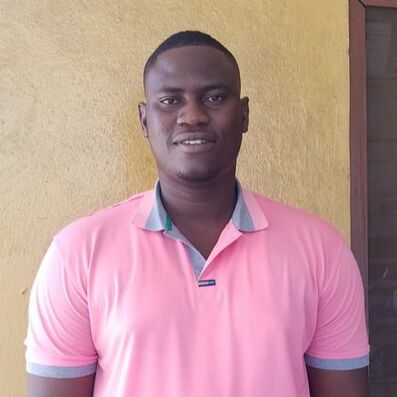 Victor Kanu, CRC Case Manager and Family Strengthening Program Manager Victor Kanu, CRC Case Manager and Family Strengthening Program Manager Victor Kanu Victor Kanu’s favorite part of being a case manager for the CRC is visiting the children on his caseload at their homes and school and helping plan and conduct various workshops for students and caregivers. He believes that case management is critical to the overall success of the mission of CRC, because “the process helps Case Managers have firsthand knowledge of the children they serve, connect with them and their parents, and even the community in which they live.” In addition to managing a caseload of more than 60 CRC students and their families, Victor also collects and shares the stories of the CRC activities with HCW, manages the Family Strengthening Program activities, and works as the CRC’s Tiers 2 and 3 Coordinator. Victor holds a Certificate in Sexual and Reproductive Health and Rights, a Certificate in Sexual and Gender Based violence and Gender laws , a Diploma in Computer Software, H.N.D In Community Development Studies, and a B.A. in Project and Development Studies. According to Victor, one of the biggest challenges he deals with as a CRC Case Manager is the sometimes overwhelming caseload. He has high hopes for every child in his caseload, hoping they all are able to be successful in their studies, and that they will grow up to contribute to the development of Sierra Leone as adults. 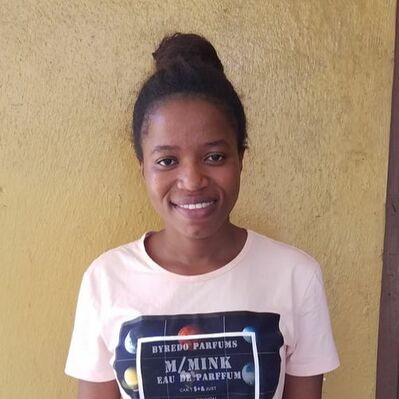 Rosa Saffa, CRC Case Manager Rosa Saffa, CRC Case Manager Rosa Saffa Rosa Saffa has been working with the Child Rescue Centre since 2016 as the counselor for Residential Students, and transitioned into a CRC Case Manager during the CRC transformation to family-based care as residential students were reunified with their families starting in 2017. She holds a Bachelor of Arts in Sociology, a Diploma in African Studies, as well as a Certificate in Peace and Counseling and Attachment Theory Workshop Facilitation. The most interesting and most important part of her job is being involved in the welfare of the children in the CRC programs. Rosa continues to provide counseling services for students and their families and caregivers during workshops and trainings held at the CRC. There is a lot of responsibility that comes with being a case manager. "Case management is important because it has helped in getting every child involved, checked on, and cared for," Rosa explained. "But the biggest challenge we face as case managers is when families move and their address changes, and they don't contact the CRC office or their assigned case manager. The greatest thing I can hope for is that the children I am responsible for improve and are successful in their academics."
0 Comments
By Kimberly Nabieu, HCW Medical Programs Liaison
Mercy Hospital is making a concerted effort to strengthen connections among decision-makers at area health facilities. Since his arrival in the fall of 2016, Mercy’s Hospital Administrator, Jinnah Lahai, has held a series of meetings with other health professionals, and Dr. Amara has joined in these efforts since his arrival in early 2018. Sierra Leone is a small country with fewer than 200 doctors, and so most of them know each other. Mercy’s Dr. Amara already had strong ties to the health system in Bo through personal and professional connections, and he is utilizing those connections to increase collaboration. Mr. Lahai and Dr. Amara are dispelling the stereotypical view of some that ‘other’ hospitals are “competition” by deliberately reaching out and seeking connection. The new Bo District Medical Officer, Dr. Carson-Marsh, shares Dr. Amara’s views that working together makes more sense than working alone. Recently, Dr. Amara visited Bo Government Hospital to meet with Dr. Minnah. He found both Dr. Minnah and Dr. Kabba (from Gila’s Hospital) in surgery working on an acute abdominal case involving pain on the right side. Dr. Minnah was in the process of locating the appendix when Dr. Amara remembered a similar case he had recently done at Mercy with Matron Augusta where the appendix was wrapped in the omentum - a thin layer of tissue that holds the intestines in place - and pulled deep into the abdominal cavity behind a number of other structures. This made it extremely difficult to locate. Dr. Amara checked to see if this was also happening in Dr. Minnah’s patient and was able to locate the inflamed and infected appendix. They were able to successfully remove it, and the patient made a full recovery. After assisting Dr. Minnah, Dr. Amara was able to observe Dr. Kabba’s case. A more unique surgery, Dr. Kabba was working on an infant with a kind of spina bifida. This patient’s spinal column had not formed properly, leaving a section of the spinal cord and spinal nerves protruding through an opening in the column into a sac on the outside of the baby’s back. This happens when the child is developing and leaves a lump on the back. Dr. Kabba was able to repair the defect, returning the exposed nerves back into the spinal column and closing the opening. These types of defects are typically caused by nutritional defects that can be addressed through prenatal care early in pregnancy. Dr. Amara’s ability to observe this surgery not only broadens his knowledge of complex surgical cases, but also highlights the needs Mercy is addressing through its prenatal program. Mercy is also collaborating with Rural Health Care Initiative (RHCI), an NGO that works on community health projects, including a birth waiting home in Tikonko (one of Mercy’s outreach catchment areas). RHCI is piloting a Positive Deviance Hearth project that could potentially uncover some local solutions to malnutrition affecting infants and children under five. Those results will be shared with Mercy to improve Mercy’s own outreach nutrition program. Mercy is also working to assist the birth waiting home with occasional use of the portable ultrasound so the staff can know when mothers are expected to deliver. Helping Children Worldwide celebrates World Social Work Day (March 19) by highlighting the excellent work of the CRC’s Case Management Team. The CRC is focused on continuing to provide the best support possible to children and families in its programs, now through a case management system that is growing stronger every day. Plans to continue to build capacity include installation of a case management database, ongoing professional dialogue with others in the field, and a Case Managers’ Learning Collaborative project launching this July. Following in the footsteps of Mercy Hospital’s recent installation of an Electronic Medical Information System (EMIS), the CRC is also hard at work developing and installing an Electronic Case Management System (ECMS). The ECMS will enable case managers create and update individual, electronic case files for each of the children in their caseload, while ensuring confidentiality of sensitive information. All case files will be stored on a common server and Case Management Supervisor David Musa will have oversight of the CRCs entire caseload of 560 students. Eventually, aggregate data collected to analyze trends and improve and strengthen the program will be available through this system as well. Joseph Lamin, of Mercy Research Lab, Mercy Statistician Ishmael Vandi, and HCW Intern Sam Bundren will assist the Systems Coordinator and Database Manager Johanese Bans and the rest of the case management team with getting the system set up and for training the staff in its use. This month, the CRC launched a bi-monthly Case Management Zoom Teleconference with experienced social workers/case managers in the US. These calls are designed to create a space for case managers on both sides of the ocean to share best practices and strategies in case management, trouble-shoot particularly difficult cases, and engage in professional dialogue with colleagues. A small team of US case managers will join HCW’s July UMVIM team to launch the first Case Managers’ Learning Collaborative. Modeled after the successful Teachers’ Learning Collaborative launched last summer, the project will allow case managers from the US and Sierra Leone to share case management strategies with one another as equals. The project will include staff from two other Bo Children’s Homes, as well as representatives from the Ministry of Social Welfare and Gender Affairs. Currently there is no formal, government-run case management system for vulnerable children in Sierra Leone. UNICEF is launching a three year project focused on strengthening the child protection system in Sierra Leone by building capacity of the government leading the application of a national Case Management System, which will ensure registration, assessment and needs-based referral for services, and follow-up for vulnerable children. Once that system comes online, the CRC will be ready to shift to connect to the national database. |
Follow us on social media
Archive
July 2024
Click the button to read heartfelt tributes to a beloved Bishop, co- founder of our mission!
Post
|
Helping Children Worldwide is a 501 (c) 3 nonprofit organization | 703-793-9521 | [email protected]
©2017 - 2021 Helping Children Worldwide
All donations in the United States are tax-deductible in full or part. | Donor and Privacy Policy
©2017 - 2021 Helping Children Worldwide
All donations in the United States are tax-deductible in full or part. | Donor and Privacy Policy

